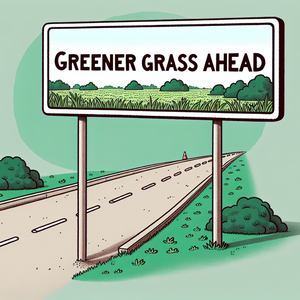The Evolution of Boxing: From Tyson's Era to Paul's Influence

Mike Tyson, known for his explosive power and aggressive style, dominated the boxing world in the late 1980s. With a fearsome ability to knock out opponents in the early rounds, Tyson became a cultural icon. His training regimen was intense, focusing on strength, speed, and technique. The legendary trainer Cus D'Amato instilled in Tyson a philosophy of discipline and mental toughness, preparing him for the challenges of the ring. Tyson’s fights were not just sporting events; they were cultural phenomena that drew millions of viewers. His mystique—stemming from a troubled past, a meteoric rise to fame, and his unapologetic persona—added layers to his appeal, making him a symbol of masculinity and aggression in sports. During Tyson's peak, boxing was a traditional sport deeply rooted in its history and values. Fighters trained for years in gymnasiums, honing their craft in a linear progression toward championship titles. The audience was loyal but niche, primarily composed of boxing purists who appreciated the skill and discipline required for the sport. Tyson's bouts were characterized by their intensity, showcasing not only his physical prowess but also a deep understanding of the psychological aspects of boxing.
The Rise of Influencers: Jake Paul’s Impact
Fast forward to the present day, where social media has revolutionized how athletes engage with fans and market themselves. Enter Jake Paul, a YouTube sensation turned professional boxer. Paul's entry into boxing came with a different playbook, leveraging his massive social media following to generate buzz and attract attention, often prioritizing personality and entertainment over traditional boxing credentials. Unlike Tyson, who built his reputation through sheer talent and grit, Paul has capitalized on the spectacle of celebrity boxing. His fights often feature opponents who are not professional boxers, chosen as much for their entertainment value as their fighting skills. The bouts are designed for entertainment, with elaborate promotions and a heavy emphasis on narrative—elements that Tyson’s era rarely incorporated. This shift towards a more commercialized, entertainment-focused approach has attracted a younger audience, expanding boxing’s reach beyond its traditional fan base.
Training and Audience Engagement: A Shift in Focus
The evolution of training techniques highlights the changing landscape of boxing. Tyson’s training was heavily focused on physical conditioning, with grueling workouts emphasizing power and endurance. His training routines were meticulously structured, aimed at developing the physical and mental fortitude necessary for success in the ring. In contrast, Jake Paul’s training regimen reflects a modern approach that incorporates various fitness trends, including strength training, cardio, and elements from other combat sports like MMA. However, the emphasis on social media presence and public persona often overshadows traditional training methods. Paul's training sessions frequently become spectacle events in themselves, streamed live to millions, showcasing not only his physical preparations but also his ability to engage with fans. This shift represents a new paradigm in which the athlete’s personality and marketing acumen are as important as their fighting skills.
The Celebrity Boxing Phenomenon
The rise of celebrity boxing has created a new genre within the sport, where traditional fighters and influencers clash in the ring. This phenomenon has been both praised and criticized; while it brings new fans to the sport, it also raises questions about authenticity and the future of boxing as a legitimate competitive sport. Critics argue that the focus on entertainment diminishes the sport's competitive integrity, while proponents claim it democratizes boxing, making it more accessible and relatable to a broader audience. The juxtaposition of Tyson’s legacy as a fierce competitor with Paul’s approach as an entertainer illustrates the diverging paths of boxing in the 21st century. Tyson’s fights were about proving physical dominance; Paul’s are often about creating a spectacle. This difference reflects a broader cultural shift in how we perceive sports, celebrity, and entertainment.
The evolution of boxing from the era of Mike Tyson to the influence of Jake Paul encapsulates a broader cultural shift in how we perceive sports. Tyson represented a time when boxing was revered for its raw talent and authenticity, while Paul embodies a new age where social media and spectacle play pivotal roles. As boxing continues to evolve, it will be intriguing to see how these influences shape the next generation of fighters and the sport's enduring legacy. The future of boxing may be uncertain, but one thing is clear: the sport will always find a way to captivate audiences, whether through the ferocity of a knockout punch or the charisma of an influencer in the ring.
Sports Marketing Manager
Sports marketing agencies, boxing promotions, and entertainment companies
Core Responsibilities
Develop and execute marketing strategies for boxing events, focusing on both traditional and digital platforms.
Collaborate with athletes and influencers, like Jake Paul, to enhance brand visibility and audience engagement.
Analyze market trends to identify opportunities for growth and fan engagement.
Required Skills
Strong understanding of social media marketing and analytics.
Experience in event promotion and sponsorship acquisition.
Ability to work with diverse stakeholders, from boxers to media outlets.
Boxing Trainer (Strength and Conditioning Specialist)
Boxing gyms, professional sports teams, and fitness centers
Core Responsibilities
Design and implement tailored training programs that enhance athletes’ physical performance, focusing on strength, speed, and endurance.
Monitor athletes' progress and adjust training regimens based on performance metrics.
Provide nutritional guidance and recovery strategies to optimize performance.
Required Skills
Certification in strength and conditioning (e.g., NSCA, ACSM).
Hands-on experience working with professional athletes in combat sports.
Knowledge of injury prevention and rehabilitation techniques.
Boxing Event Coordinator
Boxing promotion companies, event management firms, and sports venues
Core Responsibilities
Plan and execute boxing events, from securing venues to managing logistics and coordinating with various stakeholders.
Oversee ticket sales and promotion, ensuring maximum audience attendance and engagement.
Collaborate with fighters, promoters, and sponsors to create compelling and entertaining fight cards.
Required Skills
Strong organizational and project management skills.
Experience in event planning, preferably within the sports industry.
Excellent communication skills for liaising with talent and vendors.
Sports Content Creator (Digital Media Specialist)
Media companies, sports networks, and digital marketing agencies
Core Responsibilities
Produce engaging multimedia content (videos, blogs, social media posts) that highlights boxing events and fighters.
Utilize storytelling techniques to connect with audiences and promote upcoming matches, emphasizing the entertainment angle.
Collaborate with influencers, fighters, and marketing teams to maximize reach and engagement.
Required Skills
Proficiency in video editing software and content management systems.
Strong writing and communication skills tailored for digital platforms.
Understanding of SEO and social media algorithms to enhance content visibility.
Fight Analyst/Commentator
Sports broadcasting networks, online streaming platforms, and boxing promotions
Core Responsibilities
Analyze and commentate on boxing matches, providing insights into fighters' strategies, techniques, and performances.
Engage with viewers through live commentary, enhancing their understanding and enjoyment of the sport.
Conduct interviews with fighters and trainers to offer behind-the-scenes perspectives.
Required Skills
In-depth knowledge of boxing techniques and strategies, as well as the ability to articulate them clearly.
Experience in broadcasting or journalism, preferably in sports.
Strong public speaking skills and a charismatic on-screen presence.


